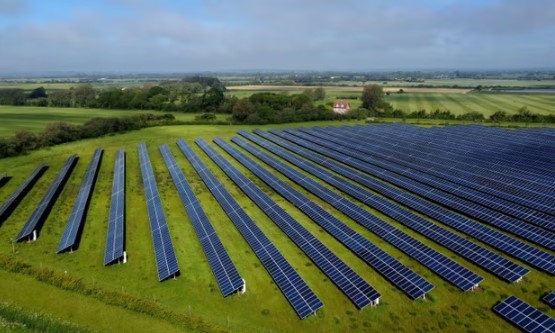
Labour Urged to Overcome Wealthy Opposition to Achieve Net-Zero Goals
To decarbonize Britain's homes, transport, and electricity system, the government will need to tackle opposition from affluent areas and significantly increase public investment, according to the Resolution Foundation, a leading think tank.
With Labour leader Keir Starmer committed to swiftly transitioning to a decarbonized power system by 2030, the Resolution Foundation's report emphasizes that this goal will require substantial government and private investment. However, the report warns that necessary projects, such as new solar farms, battery storage, and onshore wind turbines, are likely to face resistance from local groups. It notes that many renewable energy projects will occur in wealthier regions, with two-thirds of proposed solar projects situated in the richest 40% of neighborhoods.
"Effectively achieving this will mean overcoming opposition from ‘net-zero nimbys,' who typically reside in wealthier parts of the country," stated Jonny Marshall, a senior economist at the Resolution Foundation. "The government must be ready to confront these challenges, which may not be popular with some voters but are crucial for the nation."
The think tank suggests several strategies to address this resistance, including removing local control over development projects or providing financial incentives to reduce opposition. Allowing local objections could hinder the decarbonization efforts.
Starmer's government has already made moves in this direction by lifting a de facto ban on new onshore wind turbines in England, easing planning laws, and abandoning the legal defense of a proposed new coalmine. Last week, Energy Secretary Ed Miliband faced criticism from Conservative MPs after approving a new £600m energy farm on the Cambridgeshire/Suffolk border.
Torsten Bell, the former chief executive of the Resolution Foundation who recently became a Labour MP, has criticized politicians opposing new energy projects, including Green Party co-leader Adrian Ramsay. Ramsay has called for a halt in the construction of electricity pylons in his East Anglian constituency, which National Grid describes as "vital infrastructure" for offshore windfarm-generated electricity. Bell tweeted, "You can be pro-net zero or pro-zero building but not both…"
Labour has recently scaled back its promise to spend £28bn annually on green infrastructure, concerned it could be used against them by Conservatives in the upcoming general election.
The Committee on Climate Change, a watchdog, recently stated that the new government must increase renewable energy generation to meet the UK's international obligations under the Paris Agreement.
A Department for Energy Security and Net Zero spokesperson said the government is "wasting no time" in advancing green energy initiatives. "In just one week, we have removed barriers to onshore wind farms, approved more solar power than was installed in the past year, and outlined plans for a solar rooftop revolution. It is also important to listen to people's concerns, and communities hosting clean energy infrastructure should benefit directly from it."